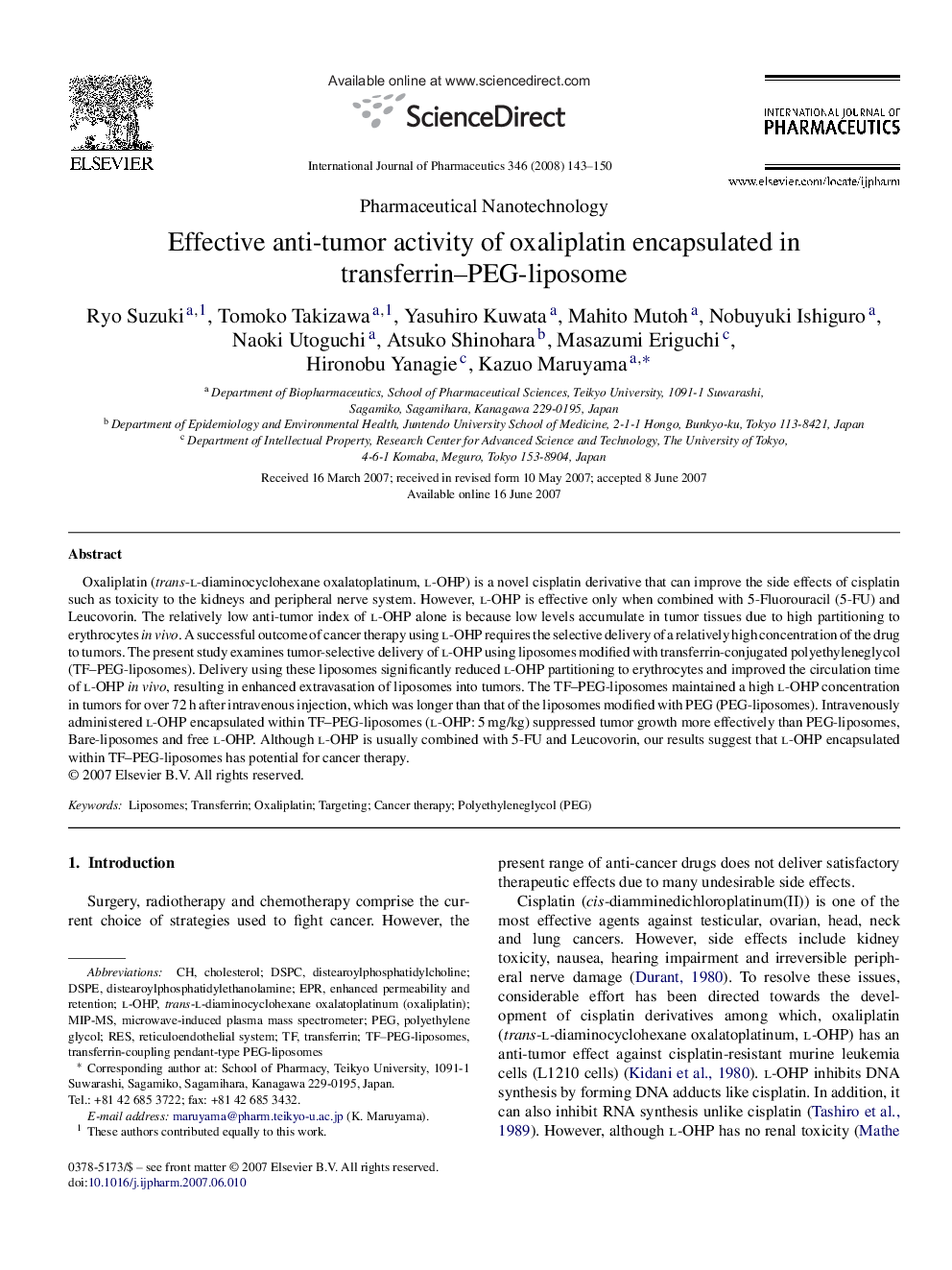| Article ID | Journal | Published Year | Pages | File Type |
|---|---|---|---|---|
| 2505987 | International Journal of Pharmaceutics | 2008 | 8 Pages |
Oxaliplatin (trans-l-diaminocyclohexane oxalatoplatinum, l-OHP) is a novel cisplatin derivative that can improve the side effects of cisplatin such as toxicity to the kidneys and peripheral nerve system. However, l-OHP is effective only when combined with 5-Fluorouracil (5-FU) and Leucovorin. The relatively low anti-tumor index of l-OHP alone is because low levels accumulate in tumor tissues due to high partitioning to erythrocytes in vivo. A successful outcome of cancer therapy using l-OHP requires the selective delivery of a relatively high concentration of the drug to tumors. The present study examines tumor-selective delivery of l-OHP using liposomes modified with transferrin-conjugated polyethyleneglycol (TF–PEG-liposomes). Delivery using these liposomes significantly reduced l-OHP partitioning to erythrocytes and improved the circulation time of l-OHP in vivo, resulting in enhanced extravasation of liposomes into tumors. The TF–PEG-liposomes maintained a high l-OHP concentration in tumors for over 72 h after intravenous injection, which was longer than that of the liposomes modified with PEG (PEG-liposomes). Intravenously administered l-OHP encapsulated within TF–PEG-liposomes (l-OHP: 5 mg/kg) suppressed tumor growth more effectively than PEG-liposomes, Bare-liposomes and free l-OHP. Although l-OHP is usually combined with 5-FU and Leucovorin, our results suggest that l-OHP encapsulated within TF–PEG-liposomes has potential for cancer therapy.
